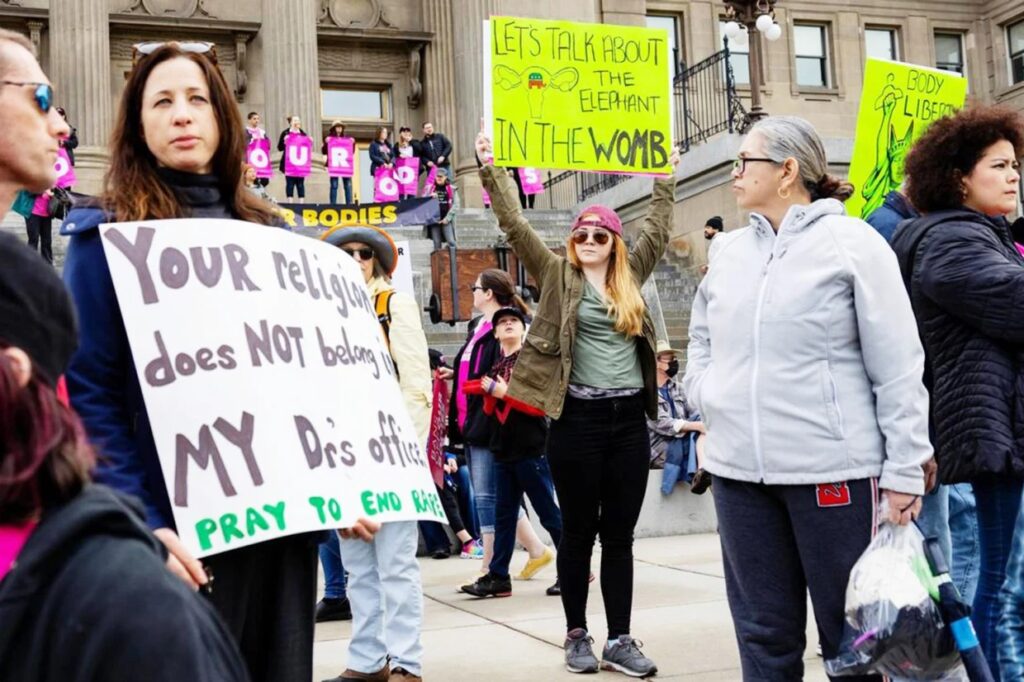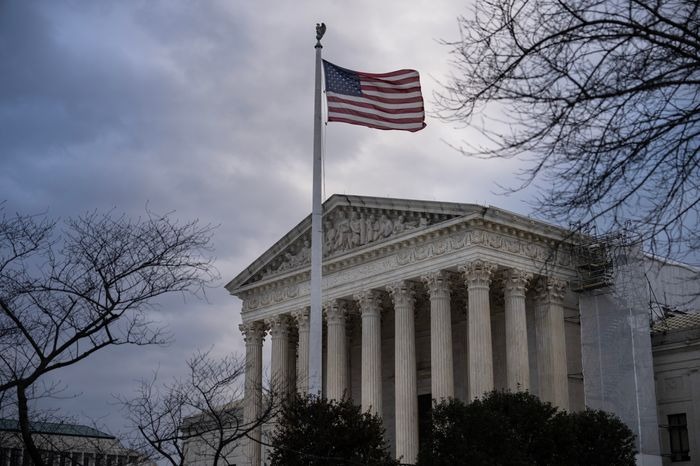United States: On the forthcoming April 24, the Supreme Court will deliberate on arguments pondering whether Idaho lawmakers possess the authority to impede physicians from administering urgent medical attention to individuals encountering complexities during pregnancy—a case that will potentially pave the way for other states to prohibit emergency reproductive care, thereby exacerbating the healthcare infrastructure for individuals universally.
Once more, politicians have instigated a scenario that could yield dire consequences on the capacity of physicians to deliver—and for expectant women to obtain—vital reproductive healthcare, according to TIME.
I am a family physician with over two decades of experience practicing medicine in remote Idaho, where I have had the privilege to counsel numerous patients throughout their pregnancies. It is not an overstatement when I assert that the healthcare system in our state is in a state of crisis, primarily due to our nearly comprehensive prohibition on abortion. Presently, instead of endeavoring to salvage what remains, Idaho politicians are seeking to expedite our downward trajectory, rendering it even more arduous for physicians like myself to extend care to patients in need. I can only trust that the Court will acknowledge that this case is not solely about abortion—it encompasses the future of emergency room care and healthcare in its entirety.
Rural healthcare has perennially encountered obstacles, but in the nearly twenty-four months since the annulment of Roe v. Wade, the situation has deteriorated exponentially. In Idaho, we have witnessed the departure of nearly a quarter of our obstetricians since the inception of the state’s abortion prohibition—colleagues and confidants who pursued medicine with the intention of aiding individuals are being compelled to exit obstetric practice within our state. They recognized the futility of delivering adequate care while under the sway of politicians who are more focused on advancing their radical agenda than safeguarding the well-being of their constituents, as outlined by TIME.

Idaho’s abortion prohibition criminalizes the performance or assistance of abortion in nearly all scenarios. The prohibition does not even incorporate an exemption for situations jeopardizing a person’s health—only when a physician deems an abortion necessary to avert the death of the pregnant individual. Consult any physician, and they will attest that this “exemption” engenders more queries than resolutions.
Individuals necessitate an urgent abortion for an array of circumstances, including the resolution of a miscarriage posing a threat to health. However, there exists no unequivocal legal delineation under the prohibition of what precisely constitutes such a scenario or when intervention is permissible, leaving physicians—functioning under the specter of prosecution—with no recourse but to err on the side of caution.
“Can I sustainably replenish her hemoglobin deficit? To what extent must organ systems deteriorate? Can a patient approach the brink of demise before intervention, or must it be imminent?” These are the callous deliberations physicians are presently compelled to grapple with, all while our patients rely on us to prioritize their welfare and act in their best interests, as mentioned by TIME.
Consequently, expectant patients often make recurrent visits to the emergency room because they are informed repeatedly that no action can be taken until their complications escalate. Imagine if a cherished individual were afflicted with a 104-degree fever, yet you were informed that no action could be taken until it surged to 106 and organ failure ensued. Mandating patients to approach the brink of irreversibility before administering care is not judicious medical policy—it is sheer cruelty, and it will only exacerbate as long as we tolerate extremism rather than science, dictating terms in our legislatures and subjugating our secure healthcare system.
Furthermore, it contravenes a longstanding federal statute—the Emergency Medical Treatment and Labor Act (EMTALA)—which mandates hospitals to address emergencies prior to their escalation to life-threatening levels. This elucidates why the U.S. Department of Justice litigated against Idaho shortly after the enactment of the state’s abortion prohibition. The litigation contends solely that Idaho must permit physicians to provide abortions in medical emergencies where it constitutes the standard stabilizing care, yet even that proved contentious for state authorities.
Instead, Idaho politicians contested the DOJ’s stance all the way to the Supreme Court. The Supreme Court’s ruling will exert far-reaching ramifications reverberating nationwide. Should the Court affirm that federal law no longer shields pregnant individuals during emergencies, it will furnish anti-abortion politicians nationwide the carte blanche to withhold essential abortion care, impel providers to vacate states where their decisions with patients are susceptible to second-guessing by prosecutors, and perpetuate this cycle of inhumanity towards patients, TIME reported.
As evinced in Idaho, policies guided by anti-abortion extremism exacerbate healthcare outcomes for all. This onslaught on abortion has not culminated with abortion—it has expanded to encompass more of our rights and healthcare, encompassing contraception, in vitro fertilization, prescription medications, and now emergency medical care—all jeopardized.
This must cease.
For nearly four decades, federal law has guaranteed that patients have access to requisite emergency care, including in scenarios where a pregnancy takes a dire turn. The Supreme Court must uphold this statute and ensure that pregnant individuals continue to receive the care they necessitate when they necessitate it the most. The well-being of my patients in West Central Idaho—and millions of other Americans nationwide—merits nothing less.











Leave a Reply